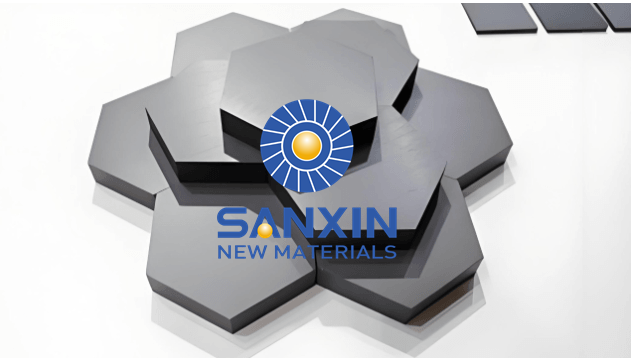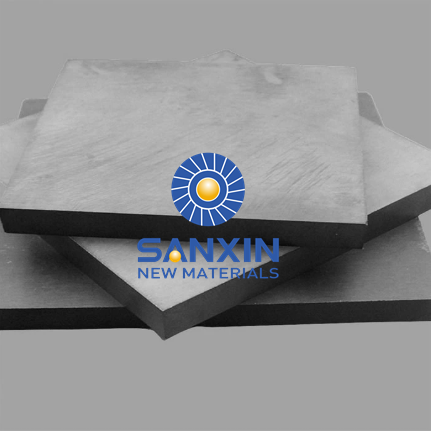
In the rapidly evolving industries of photovoltaics, semiconductors, and advanced electronics, maintaining the purity of quartz materials is no longer a luxury—it’s a necessity. As these industries push technological boundaries, the quality of raw materials becomes increasingly critical. Among them, high-purity quartz (SiO₂ ≥ 98%) plays a foundational role in producing electronic-grade silicon and other precision components.
Unfortunately, traditional metal screening and conveying systems often fall short in these demanding applications. From frequent wear to material contamination, these issues drive up operational costs and compromise product quality. The answer? Silicon carbide (SiC) ceramic linings—a breakthrough material solution that ensures purity, durability, and operational efficiency across the board.
Before diving into the solution, it’s crucial to understand the importance of process integrity in quartz handling. The journey of quartz from raw mineral to refined powder or crystal involves several stages:
Screening and sorting for grain size uniformity
Conveying materials between processing stations
Calcination and refining to eliminate impurities
Any wear or contamination introduced during these steps can compromise the entire production batch. That’s why industries are increasingly turning to ceramic wear-resistant linings to prevent these issues before they begin.

Although metal has been the default material choice for decades, it is ill-suited for high-purity applications. Here’s why:
Metal components, especially in high-friction or high-impact zones, degrade quickly—often within 1 to 2 months. This leads to:
Frequent equipment shutdowns
Increased maintenance and labor costs
Supply chain disruptions
Metal debris—microscopic or visible—can flake off and mix with quartz, especially in vibratory screens or chutes. Even trace levels of contamination are unacceptable in industries like:
Solar energy production
Semiconductor wafer fabrication
Fiber optic manufacturing
During high-temperature processes like calcination, metal linings may oxidize or deform, introducing further contamination risks and mechanical failures.

Silicon carbide is an ultra-hard, chemically inert ceramic compound composed of silicon and carbon. It is thermally stable, wear-resistant, and chemically compatible with high-purity quartz materials.
Mohs Hardness of 9.2 – More than 15 times harder than high manganese steel
Thermal Resistance – Stable at temperatures exceeding 1,400°C
Chemical Inertness – Will not react with quartz or release contaminants
Eco-Friendly Burnout – Carbon elements volatilize as CO₂ during calcination
These characteristics make SiC the ideal choice for extending the life of screening and conveying systems while ensuring zero contamination.
SiC linings can last over a year, even in the most abrasive applications. This means fewer maintenance cycles, longer production runs, and lower costs.
Comparison:
| Material | Average Lifespan | Maintenance Frequency |
|---|---|---|
| High Manganese Steel | 1–2 months | Every 4–8 weeks |
| Silicon Carbide | 12–18 months | Once a year or less |
Since SiC is chemically similar to quartz and contains no metals, there’s zero risk of metallic contamination. This results in:
Higher product yields
Fewer rejections at quality control
Greater customer trust
Less frequent breakdowns and replacements lead to a 50% increase in production line stability. Processes become smoother, and equipment runs at optimal performance levels.
Companies have reported up to a 60% reduction in total maintenance costs after switching to SiC linings. The savings stem from:
Fewer part replacements
Lower labor costs
Less downtime
Sanxin’s SiC ceramic linings are custom-designed to fit various sections of quartz processing systems, depending on the wear dynamics and material flow patterns.
In areas subject to repeated mechanical stress—such as drop chutes or impact points—Sanxin installs SiC composite liners that absorb shock while resisting abrasion.
For areas like rotary screens and vibratory feeders, high-purity SiC plates provide a smooth, durable surface that protects both equipment and material.
Sanxin’s SiC ceramic pipes offer excellent resistance to abrasion during horizontal or vertical transport, ensuring minimal wear and high throughput.
High-purity quartz is the foundation for solar-grade silicon, which is then sliced into wafers and turned into solar cells. Metal contamination can reduce panel efficiency or lead to outright product rejection. SiC linings ensure:
Clean quartz transport
Stable process yields
Cost-effective solar cell manufacturing
The production of semiconductors demands ultra-high purity quartz powder. Even the smallest contamination particles can cause defects in chip fabrication. Silicon carbide ensures:
Absolute purity
Long-term reliability
Compliance with cleanroom manufacturing standards
Applications like fiber optics, LED wafers, and specialty lenses require quartz with extremely consistent properties. SiC linings help deliver consistent quality at scale.
Sanxin is a leading provider of advanced ceramic materials for high-performance industrial applications. With a strong focus on R&D, custom engineering, and application-specific solutions, the company helps manufacturers stay ahead of the curve.
Ceramic Milling Balls – High-efficiency grinding media for fine particle dispersion
Nanoparticles and Nanopowders – Consistent performance for coatings, catalysts, and battery materials
Wear-Resistant Ceramics – Ideal for mining, metallurgy, and high-purity material handling
Abrasion-Resistant Ceramics – Built to withstand extreme wear and harsh environments
Challenge: Frequent screen failures and contamination were leading to excessive waste and quality control failures.
Solution: Sanxin replaced the client's entire metal screening system with SiC-lined chutes and feeders.
Results:
70% increase in uptime
Contamination levels reduced to non-detectable levels
ROI achieved within six months
Challenge: Traditional steel conveyors were introducing trace iron into ultra-pure quartz powder.
Solution: Installation of custom SiC ceramic pipelines across key process lines.
Results:
Zero metallic contamination for 18+ months
Maintenance frequency reduced by 65%
Compliance with ISO 14644-1 cleanroom standards
Sanxin offers end-to-end support for integrating SiC ceramic linings into your operations. Services include:
On-site wear analysis
Custom CAD modeling
Precision fabrication and installation
Post-installation performance tracking
No matter your system configuration, Sanxin can engineer a ceramic lining solution that fits seamlessly and performs flawlessly.
Less frequent replacement of parts means less waste sent to landfills—a major benefit for companies with sustainability goals.
Ceramic linings reduce the frequency of heavy equipment maintenance, minimizing worker exposure to dangerous tasks and environments.
With global demand for solar energy and advanced electronics soaring, the pressure is on manufacturers to produce more with less. The solution isn’t to work harder—it’s to work smarter. And silicon carbide ceramic linings from Sanxin New Materials Co., Ltd. offer just that.
Make the switch to Sanxin’s ceramic wear solutions today, and enjoy the perfect combination of high purity, durability, and cost-efficiency.

Submit your demand,
we will contact you ASAP.

Sanxin New Materials Co., Ltd. focus on producing and selling ceramic beads and parts such as grinding media, blasting beads, bearing ball, structure part, ceramic wear-resistant liners, Nanoparticles Nano Powder

